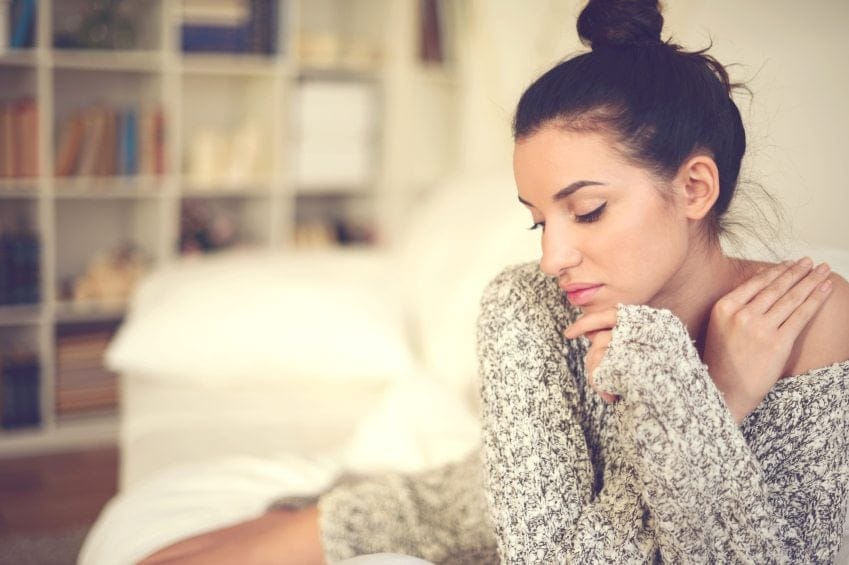Social anxiety disorder has been getting a lot of media coverage as of late, likely because famous personalities are starting to come forward and talk about their struggle with the disorder. However, with all of this new attention being paid to social anxiety disorder comes a lot of misconceptions of what social anxiety is, who has it, what it means to have it, what affects it can have on a person, and how to help someone who suffers from it.
To help clear up any confusion, here are 12 major misconceptions people have of social anxiety disorder:
- Social anxiety isn’t just shyness. Shyness is a personality trait, and people who are shy can often lead a normal life and not see being shy as a negative thing. Social anxiety, however, is a disorder. It’s classified as such because of the severity of feelings, i.e. fear, embarrassment or humiliation. These feelings cause the person to avoid social situations, and can therefore negatively impacts their lives.
- Social anxiety isn’t just a polite way to excuse anti-social behavior. In fact, people with anxiety hate that they may come across as anti-social. It eats them up inside and makes them feel so much worse. If they could make eye contact, be polite, and go out with you all the time, they would. They really would.
- There isn’t always a reason for the anxiety. Everyone feels anxious now and then, that’s normal. Usually people who don’t suffer from social anxiety disorder, can explain why their feeling anxious, i.e. I’ve a big interview coming up, my dad isn’t well, I’m not sure what to do with my life. When you have social anxiety disorder, however, there isn’t always an explanation. Some of the time there’s no reason at all.
- We’re not trying to come off as rude, angry, or lazy. Yes, we sometimes make excuses. Yes, we might sit in the corner on our phones all night. Yes, we avoid eye contact. We’re not rude. We’re not angry. We’re not lazy. We’re terrified.
- People with social anxiety disorder aren’t just saying it to get attention. This seems to be the popular go-to for people who are less than kind about social anxiety disorders. The reality is that, while some people may misdiagnose themselves, be misdiagnosed by doctors, or simply be going through a hard patch, the majority of people who say they have social anxiety disorder are genuine. They’re not trying to get attention (in fact, they probably won’t as little attention as possible drawn on them). They don’t think it’s cool. They don’t think it’s hip. Instead, they’re really suffering and hoping that you would show them some understanding if you knew what they were dealing with.
- Suggesting meditation or mindfulness isn’t very helpful. This is often a well-meaning comment by loved ones who are just trying to support you with your social anxiety, but the problem is that most people who suffer with some kind of social anxiety disorder know all about meditation and mindfulness already. And while they can be great tools in handling certain episodes relating to the disorder (sometimes), meditations and mindfulness doesn’t fix the overall problem.
- Anxiousness isn’t something that can just simply be controlled. There have been times where I’ve been able to talk my way back from the brink of a panic attack, and there have been other times where they’ve come on so quickly and unexpectedly that there was nothing I – or anyone else – could have done. That’s just another great part of having social anxiety.
- Social anxiety is not just a phase. Although people who suffer from social anxiety disorders can go through good phases and bad phases, the disorder is ever present.
- Having anxiety isn’t just a quirk. Anxiety isn’t like being clumsy, or being kooky. It sucks and it’s not funny or cute. It’s a serious disorder and should be treated as such.
- There are many different forms of anxiety. Anxiety actually exists on a spectrum, with everyone experiencing different levels and types of anxiety. Some will stay at the lower end of the scale and simply get stressed easily over small things, and others will always have to deal with panic attacks on a daily basis and need medication in order to control the disorder and the resulting behavioral impacts. And some will experience both the less severe, and the most severe forms in their lives.
- Having anxiety affects you physically as well as mentally. After a panic attack, or a day of stressing over every single tiny minute detail and hating yourself, your body can feel drained. People with anxiety often experience nausea, fainting, sweating and headaches.
- Not everyone who suffers from social anxiety disorder are triggered by the same thing. Some people with social anxiety can be in crowds, but they’re triggered by too much attention being drawn to them individually. Some people with social anxiety can’t be in crowds, but are happy enough to stand in front of a camera and model/present/act. Everyone has different triggers, so it helps to be mindful of that when you’re with someone who has social anxiety disorder.



